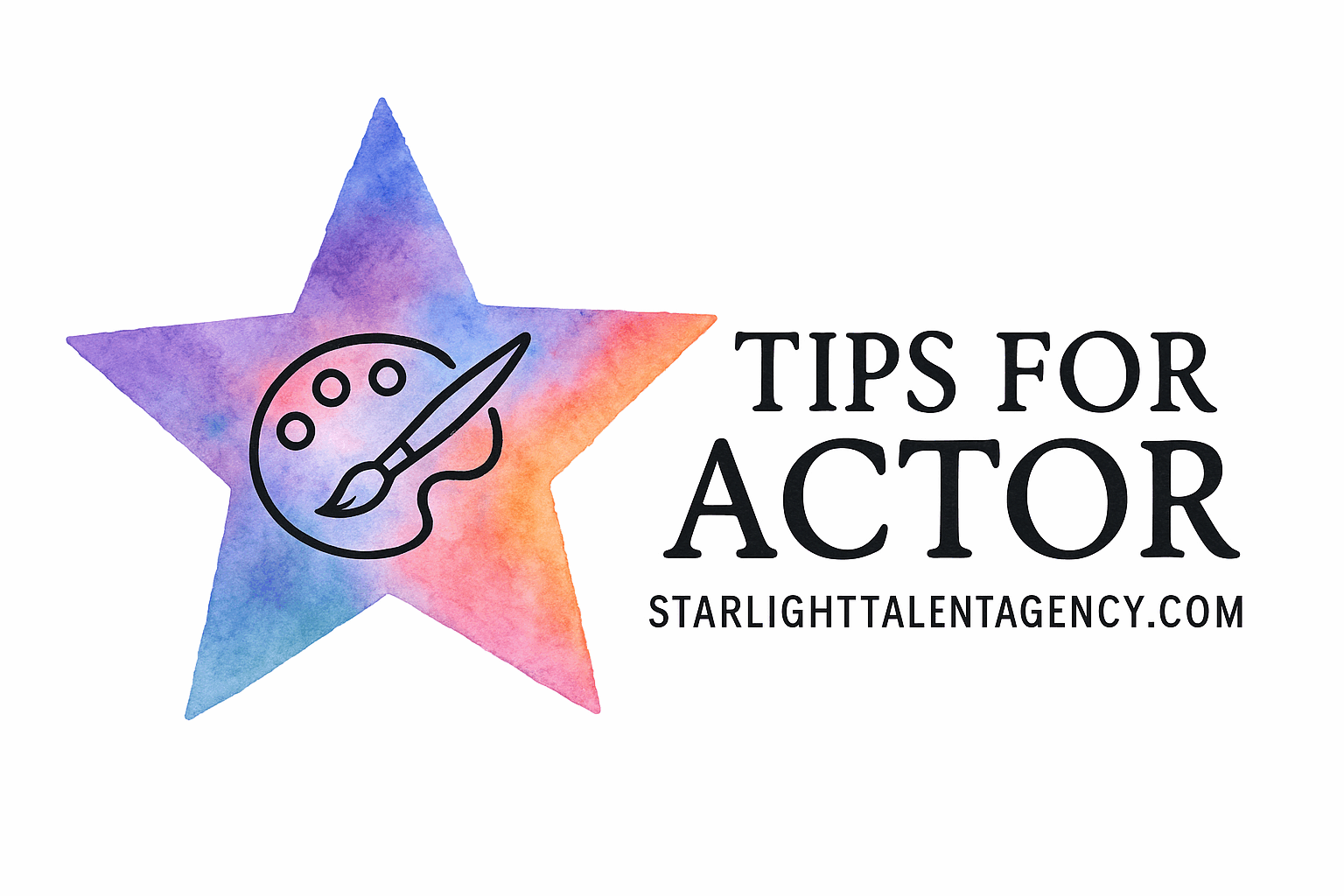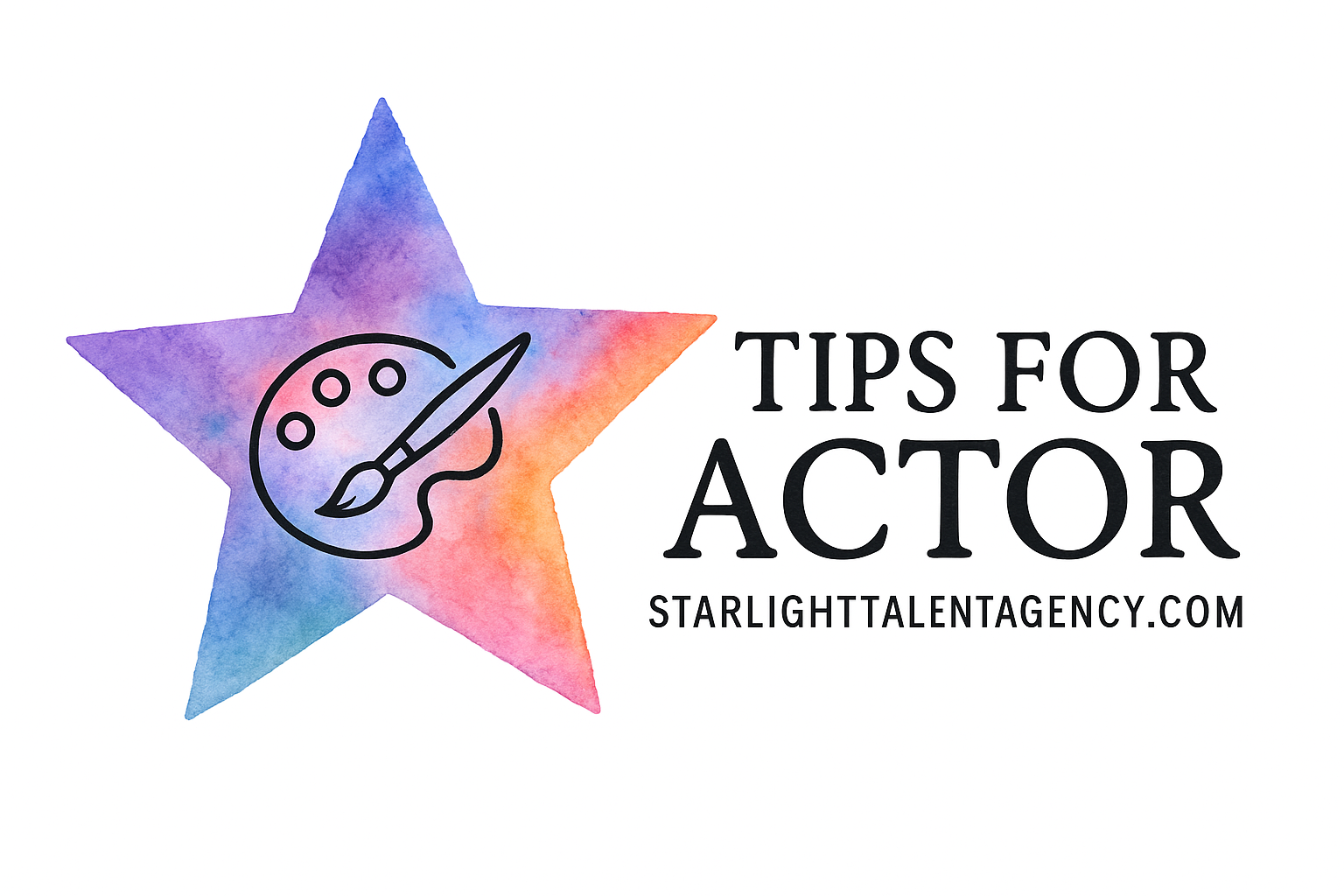Introduction to Cold Reading for Actors
Cold reading can feel like standing on stage without a script—exciting, unpredictable, and deeply revealing of your instincts. Every actor, from beginner to seasoned professional, will face a cold read at some point. And the truth is: mastering cold reading success can make or break your audition.
Cold reading is about more than reading lines. It’s about connecting emotionally, making bold choices, and staying flexible under pressure. In this guide, you’ll learn ten expert coaching tips that can turn a nerve-wracking cold read into a career-boosting opportunity.
For more on foundational preparation, explore Audition Preparation Basics from Starlight Talent Agency.
What Is Cold Reading and Why It Matters
Understanding the Purpose of Cold Reads
Cold reading is when you’re handed a script moments before performing. Casting directors use it to see how well you think on your feet, analyze quickly, and commit emotionally.
They’re not looking for memorization—they’re looking for authenticity. Your job is to breathe life into the script, even if it’s your first time seeing it.
Learn more about audition strategy in Advanced Audition Skills.
The Connection Between Cold Reading and Acting Confidence
Confidence is the silent power behind a strong cold read. When you trust your instincts, you naturally project presence and authority. That’s why developing your acting confidence matters—it allows you to perform from a place of freedom, not fear.
If confidence is a struggle, check out Acting Confidence for practical mindset tools.

Tip 1: Embrace the Unknown — Stay Relaxed and Open
How to Stay Calm Under Pressure
Every actor gets nervous before a cold read. The key is not to fight it but to channel it. Take a deep breath, relax your shoulders, and remember—you’re not being tested; you’re being invited to play.
Quick warm-up routines like light stretching, breathwork, or vocal exercises from Warm-Up Exercises can help you stay grounded and ready to respond authentically.
Tip 2: Focus on Comprehension Before Performance
Quick Script Analysis for Cold Reading
Don’t rush to perform—understand first. Within your limited prep time, look for:
- Who are you in the scene?
- What do you want?
- What’s in your way?
A few seconds of analysis helps create believable emotional stakes. This process connects closely to Script Analysis, a vital skill for any actor aiming for long-term success.
Tip 3: Find Emotional Anchors Quickly
Building Instant Character Connection
Emotion is what sells your read. Once you identify what your character feels—anger, fear, joy, hope—use that as your emotional anchor.
Your ability to connect quickly comes from training in Character Development. It teaches you how to embody feelings fast, even when the material is unfamiliar.
Tip 4: Prioritize Clear Choices Over Perfect Lines
Why Bold Decisions Impress Casting Directors
Casting directors remember clarity, not perfection. If you stumble on a line but make strong, truthful choices, you’ll still stand out. Don’t play it safe—commit fully.
Confidence in decision-making ties to Acting Flexibility, the skill that helps you shift energy and intent with ease during any audition.
Tip 5: Master the Art of Eye Contact and Engagement
Balancing the Page and the Scene Partner
It’s tricky to juggle reading the script and engaging with your partner. The trick? Use the “scan and connect” method—glance down for the line, then immediately lift your eyes and deliver it truthfully.
Actors working on-camera can refine this through Self-Tape Acting, where eye focus, camera engagement, and realism make all the difference.
Tip 6: Use Physicality and Voice to Enhance Performance
Incorporating Body Acting and Vocal Variety
Even in a cold read, your body and voice tell a story. Posture, facial expressions, and gestures add layers to your performance. So does vocal variation—pitch, volume, rhythm.
Refine these with insights from Body Acting and Expressive Acting to create a fully realized, engaging performance.
Tip 7: Stay Flexible and Adapt to Direction
How to Handle Adjustments with Grace
You might hear feedback like “Try it softer” or “Add more tension.” The best actors adjust instantly. Adaptability shows professionalism, which is highly valued in the industry.
This adaptability is strengthened through Taking Direction — a core skill for actors who want to thrive in collaborative environments.
Tip 8: Strengthen Cold Reading Through Practice
Recommended Exercises and Scene Work
Cold reading isn’t luck—it’s practice. Try this:
- Pick random scripts and perform them cold weekly.
- Join scene workshops focused on Scene Work.
- Record yourself for review and note emotional consistency.
Consistent drills make you more confident and flexible in auditions and live readings alike.
Tip 9: Use Your Imagination to Fill in the Gaps
Building Context When You Don’t Have One
You won’t always get full context for your scene—so build it. Imagine what happened before, where you are, and who you’re talking to.
This process strengthens your emotional truth and depth. Actors can enhance this ability by studying Role Physicality, which helps make imaginary circumstances feel real.
Tip 10: Record, Review, and Reflect on Your Cold Reads
Self-Tape Mastery for Ongoing Growth
With self-tapes dominating modern casting, record your cold reads often. Review your tone, pacing, and emotional flow. Small tweaks lead to big improvements.
Check out Self-Tape Mastery for professional guidance on lighting, framing, and delivery that elevate your virtual auditions.
Common Mistakes Actors Make During Cold Reads
How to Avoid Overacting and Overthinking
Avoid these pitfalls:
- Reading too fast or too flat
- Overdramatizing to “sell” emotion
- Ignoring connection with your partner
Remember: casting directors want real, not rehearsed. Explore Acting Rejection to learn how to recover from audition challenges and grow from feedback.
Building Long-Term Confidence Through Coaching
The Role of Acting Coaches and Mentors
Behind every great actor is a great coach. Working with a mentor helps you find blind spots, develop instincts, and prepare for professional auditions.
If you’re serious about growth, visit Career Growth to explore how consistent coaching shapes successful actors.
Conclusion
Cold reading is where instinct meets opportunity. The best actors don’t aim for perfection—they aim for presence. When you combine confidence, adaptability, and emotional connection, you turn a spontaneous moment into a memorable performance.
By practicing these 10 coaching tips for actor cold reading success, you’ll walk into every audition prepared, professional, and authentically you.
FAQs
1. What’s the best way to practice cold reading?
Try random scenes weekly and record them. Apply guidance from Audition Preparation Basics to improve structure and focus.
2. How important is eye contact in a cold read?
Extremely. It builds connection and authenticity. Learn more through Acting with Partners.
3. Should I memorize lines during a cold read?
No. Prioritize emotional truth and clarity instead.
4. Can cold reading skills be coached?
Yes. Check Coaching Tips for Actor for professional insights that sharpen performance instincts.
5. How do I manage nerves before a cold read?
Warm up, breathe, and recall lessons from Acting Confidence.
6. Do small mistakes ruin a cold read?
Not at all. Directors care about your energy and choices, not minor stumbles.
7. What’s the biggest secret to cold reading success?
Trust your instincts. When you commit emotionally, your performance feels alive—no matter how little time you had to prepare.

